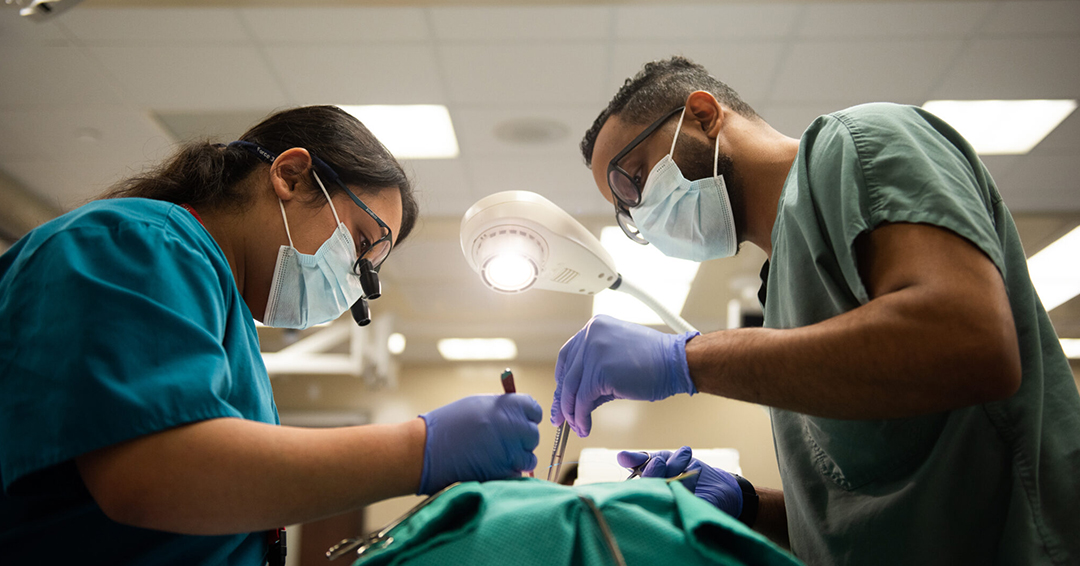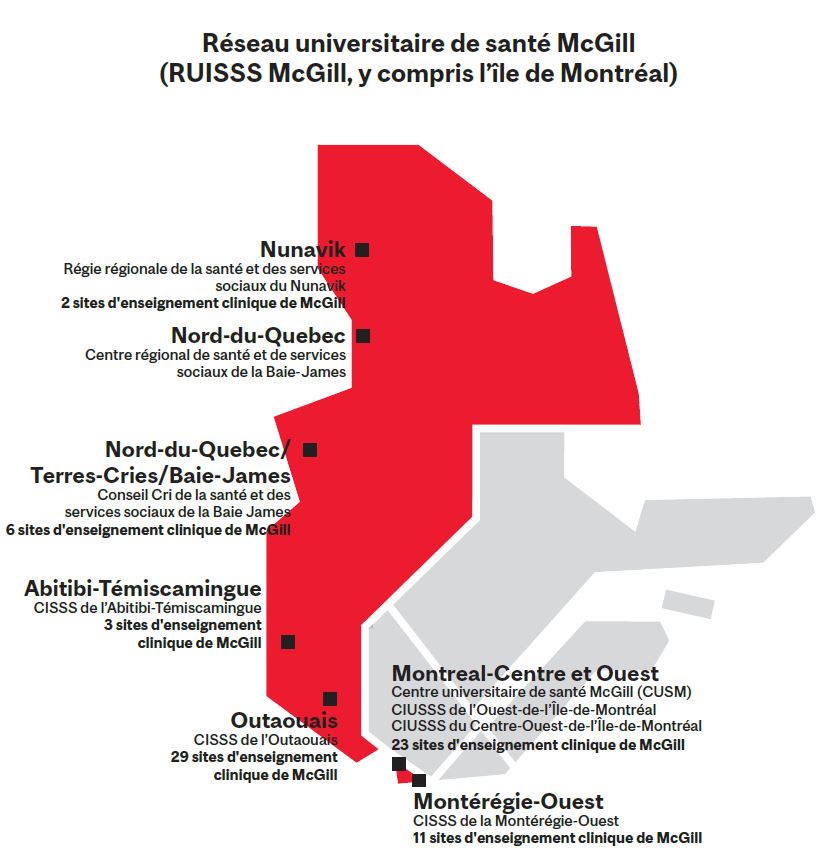
The réseau universitaire intégré de santé et services sociaux promotes collaboration between Quebec-based medical schools and the health care institutions to improve the care offered to the public
The figures are impressive: over a vast territory covering 63% of Quebec – from Montreal to Outaouais to Abitibi and all the way to Nunavik – home to 1.9 million Quebecers, the Réseau universitaire intégré de santé et services sociaux (RUISSS) McGill plays a vital role in the province’s healthcare network.
The province’s four RUISSSs, one centred on each of Quebec’s four universities with a medical faculty, were created in 2003. The mission of each RUISSS is to promote collaboration between its medical school and the healthcare institutions located on its territory, with the ultimate objective of improving the care offered to the public.
The president and CEO of the McGill University Health Centre, Dr. Lucie Opatrny, is president of RUISSS McGill. The academic vice-president is the Dean of McGill’s Faculty of Medicine and Health Sciences, Dr. Lesley Fellows.
While clinical care is delivered by healthcare institutions, the RUISSSs work behind the scenes, serving as vehicles for collaboration. The RUISSS partners work together to improve the availability and quality of care, services, and training for health care professionals, and to make the system more efficient.
Increased training of professionals outside the major centres, reinforcement of telemedicine capacity, better clinical co-ordination: the benefits to the public are considerable.
Training the next generation of medical professionals in the Outaouais
In creating the RUISSSs, one aim of the provincial government was to increase access to medical training throughout Quebec. The Health and Social Services Ministry therefore gave RUISSS McGill responsibility for promoting medical education in the Outaouais. Building on more than three decades of collaboration with partners in the region, McGill University proposed and then realized the creation of the Outaouais Campus of its Faculty of Medicine and Health Sciences, which welcomed its first cohort of medical students in 2020, in French. Plans are underway to increase the size of the student body in the coming years.
During their four years of undergraduate medical studies at Campus Outaouais, the students are involved in the community, both during their clerkships and by contributing to health initiatives undertaken by local organizations, such as Tremplin des lecteurs and la Soupière de l’Amitié.
Also in Gatineau, McGill offers its preparatory year for medical studies in collaboration with the Université du Québec en Outaouais. This program prepares recent CEGEP graduates to undertake medical studies at Campus Outaouais.
Working together for the sake of Quebecers’ healthcare
 RUISSS McGill has also done considerable work to advance telemedicine in Quebec, a valuable and now well-established tool that facilitates patients’ access to care while avoiding the need for costly and unnecessary trips for care. The network also provides doctors working throughout the province with access to the specialized expertise of colleagues in Montreal.
RUISSS McGill has also done considerable work to advance telemedicine in Quebec, a valuable and now well-established tool that facilitates patients’ access to care while avoiding the need for costly and unnecessary trips for care. The network also provides doctors working throughout the province with access to the specialized expertise of colleagues in Montreal.
As vehicles for collaboration, the RUISSSs also are well placed to promote the well-being of seniors, as shown by the “responding geriatrician” pilot project launched by the four RUISSSs. This project aims to make geriatricians’ expertise available throughout Quebec. At RUISSS McGill, the Simone and Edouard Centre of Excellence for Sustainable Health of Seniors has been given responsibility of managing the pilot project to be conducted in Abitibi-Témiscamingue.
It is also within the framework of RUISSS McGill that, for decades, medical residents and medical students doing clerkships have travelled to teaching sites throughout its vast territory, obtaining valuable medical training outside major centres. In addition to perfecting their skills, medical residents who work in these areas become an integral part of the care team, serving patients on site.
Rooted in Quebec for more than two centuries now, McGill and its Faculty of Medicine and Health Sciences have shown a deep and longstanding commitment to the improvement of health care over an immense part of Quebec, in keeping with their essential mission: to advance the health of the Quebec public.
